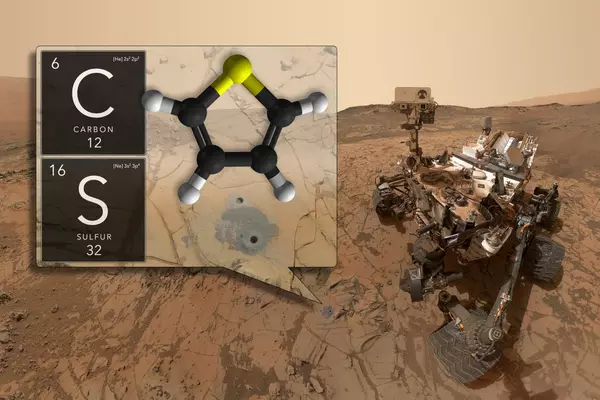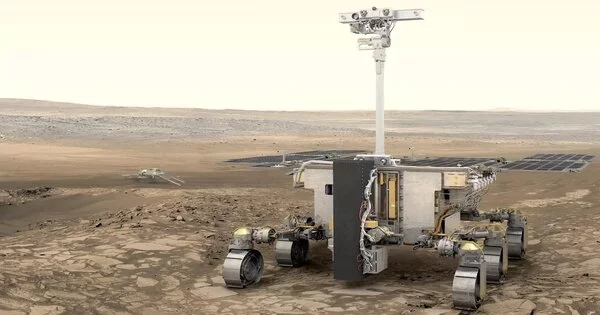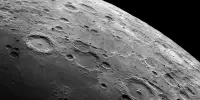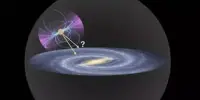A new study using data from the NASA Mars Perseverance rover has presented compelling evidence for organic material on the Martian surface, shedding light on the Red Planet’s potential habitability. The study, led by a team of scientists that included UF astrobiologist Amy Williams, was recently published in the journal Nature.
Scientists have long been intrigued by the possibility of discovering organic carbon on Mars, and while previous missions provided valuable insights, the latest research adds to our understanding of Mars. The findings point to the presence of a more complex organic geochemical cycle on Mars than previously thought, implying the existence of several distinct reservoirs of potential organic compounds.
Notably, the study discovered signals consistent with molecules associated with aqueous processes, implying that water may have played an important role in the diverse range of organic matter on Mars. The essential building blocks for life may have survived on Mars for far longer than previously thought.
The potential detection of several organic carbon species on Mars has implications for understanding the carbon cycle on Mars, as well as the planet’s ability to host life throughout its history.
Amy Williams
Amy Williams, an organic geochemist, has been at the forefront of the search for the building blocks of life on Mars. Williams’ work on the Perseverance mission as a participating scientist focuses on the search for organic matter on Mars. She hopes to find habitable environments, potential life materials, and evidence of past life on Mars. Eventually, the on-site samples collected by Perseverance will be sent back to Earth by future missions, but it will be a complex and ambitious process spanning many years.
“The potential detection of several organic carbon species on Mars has implications for understanding the carbon cycle on Mars, as well as the planet’s ability to host life throughout its history,” said Williams, an assistant professor in the University of Florida’s Department of Geological Sciences.
Organic matter can be formed through a variety of processes, not just those associated with life. Organic molecules can be formed by geological processes and chemical reactions, and these processes are preferred for the origin of these possible Martian organics. Williams and his colleagues will investigate the potential sources of these molecules further.

Organic carbon was previously detected only by the Mars Phoenix lander and Mars Curiosity rover using advanced techniques such as evolved gas analysis and gas chromatography-mass spectrometry. The new study employs a novel technique that has the potential to identify simple organic compounds on Mars.
The rover’s chosen landing site within the Jezero crater has a high potential for past habitability: It contains a variety of minerals as an ancient lake basin, including carbonates, clays, and sulphates. These minerals have the potential to preserve organic materials as well as ancient life signs.
“We didn’t initially expect to detect these potential organics signatures in the Jezero crater floor,” Williams said, “but their diversity and distribution in different units of the crater floor now suggest potentially different fates of carbon across these environments.”
To map the distribution of organic molecules and minerals on rock surfaces, the scientists used a first-of-its-kind instrument called the Scanning Habitable Environments with Raman and Luminescence for Organics and Chemicals (SHERLOC). SHERLOC uses deep ultraviolet Raman and fluorescence spectroscopy to measure weak Raman scattering and strong fluorescence emissions at the same time, providing critical insights into Mars’ organic composition.
The discoveries are a significant step forward in our exploration of Mars, laying the groundwork for future research into the possibility of life beyond Earth. “We are only scratching the surface of the organic carbon story on Mars,” Williams said, adding, “and it is an exciting time for planetary science!”
















